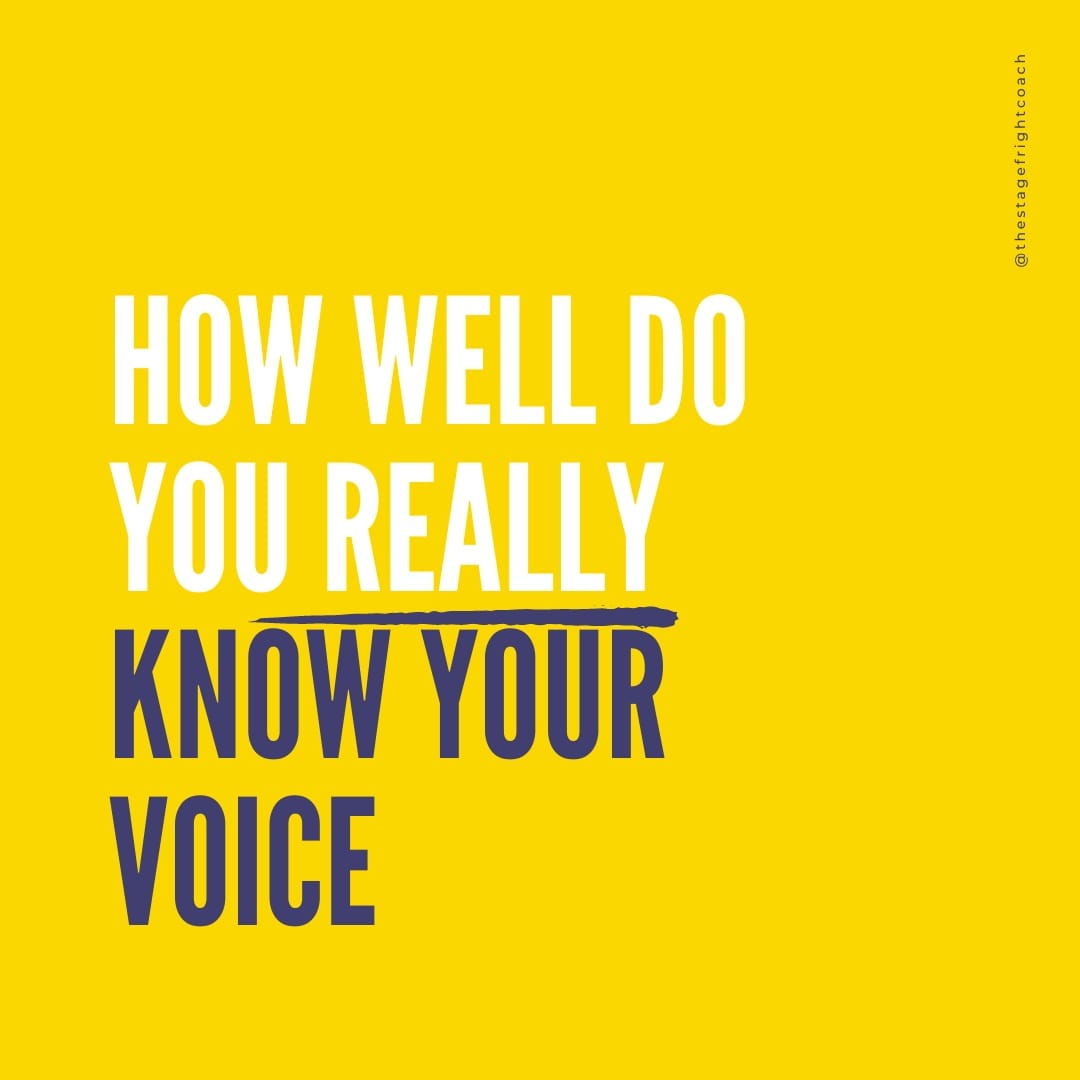Think about it. What does your voice sound like normally?
How do you use your voice when you are at work?
How do you use your voice when you're chatting with friends?
What about when you are on the phone booking a table for dinner, you hang up and then tell your partner you’ve booked that amazing restaurant? Do you even notice the change in vocal tone when you switch conversations?
I know you will understand the “Customer Service Voice”. Borne of both social and cultural influences, where your voice changes from its natural pattern and cadence to something more polished and refined that you think the other person will find pleasing.
In the case of the example above, you switch from a more formal vocal pattern on the phone to a natural, informal vocal pattern when you’re off the phone.
And sometimes you don’t even realise that you’ve done it!
It can be far more obvious to the people around you that your voice has changed than it is to yourself. Because you are used to your own vocal patterns, you think you still sound ‘normal’ when actually, you probably don’t.
Have you realised your voice changes in many subtle ways during the day, too?
Ok - hands up!
Who has been on a work call with colleagues, then someone drops off and your voice changes depending who’s left on the call?
Who has answered the adult conversation by looking at and speaking directly to the baby in a baby voice?
Who has had two children at different ages, and in having two different conversations with them both, changed your voice depending on which child you are speaking to?
And nobody so much as bats an eyelid at what just happened. Seriously?!
I could go on and on about all these subtle differences we experience every day, but I want to dig a little deeper…
Why do you change your natural vocal pattern so much?
Because you want to belong in that moment.
That’s it.
You want to establish your belonging to that moment, that encounter, that space. You want to be relatable, to be recognised as a leader, to establish yourself in your role.
Human vocal patterns can hold so much more than just words.
When you stand up in the boardroom in front of your colleagues, your ideal vocal tone is one of authority and knowledge. You automatically drop your pitch, increase your volume and use more formal vocabulary to establish your leadership role.
When you are out with your friends, your ideal vocal tone is friendly. You stop trying to modulate your pitch and volume, and your vocabulary is usually informal to establish your position as one of the pack.
When you need someone to listen & take notice of a danger, you use loud volume, a lower pitch and short words to get your point across quickly and to establish your authority and awareness of the danger.
And the best part is - we don’t even do it consciously! It’s all subconscious, until we become aware of it. (You also use your body language to accentuate your vocal pattern too, but that’s a topic for another time.)
But what happens to your voice when you get nervous?
I know you will have been there at least once in your life - when everyone is looking at you as you speak, and you get embarrassed, or nervous.
Your vocal pattern changes then, too! Your voice gets tight, your tone is strained and your vocabulary is clipped. You feel your body language shut down, your breathing becomes shallower, and your fight or flight response starts to emerge.
Maybe this is a regular occurrence for you. Public speaking can be difficult, whether that’s doing a speech for your daughter’s wedding, or giving a presentation at work. Maybe you get nervous when speaking to new people? Whatever the situation is, I guarantee your voice is the giveaway to your nerves.
When you get nervous speaking in front of someone, or a group, try this short Breathwork exercise to bring your voice back to normal. And best of all - it’s basically undetectable to others!
Box Breathing
Take a deep breath in through your nose for four counts,
Hold it in for four counts.
Then slowly release it through your nose for another four counts
Hold again on empty for four counts.
Repeat.
A box breath exercise is great for regulating your nervous system, calming you down and allowing you to think clearer. It also helps to settle your breathing pattern back to normal so your nerves don't cause too much shallow breathing. And because your mind is focused on the count, it forgets to panic about the thing that made you nervous.
In short, it's like the reset button for humans when we malfunction!
Your breath is literally the energy source for your voice.
You cannot speak without it, and when your breathing gets shallow, your vocal muscles work overtime, resulting in that strained voice that is so unlike your own!
By regulating your breathing pattern, you start to return the energy source to normal, meaning your vocal muscles can relax, and you can speak freely again. (I'd call it magic, but really it's been proven by science.)
I know nerves can be a challenge for so many people, and this is just one short exercise to help you bring those under control. Try the box breathing exercise before you have to make that phone call, or join the meeting, or whenever you feel you need a little break. I guarantee it'll make you feel better!

